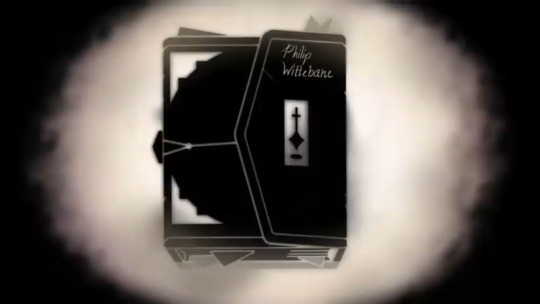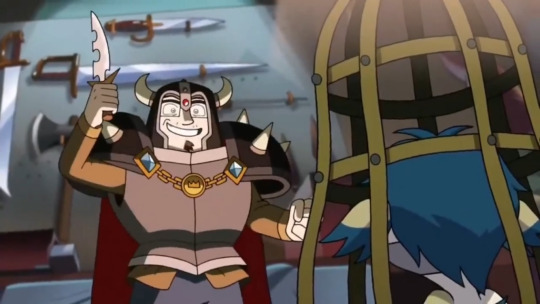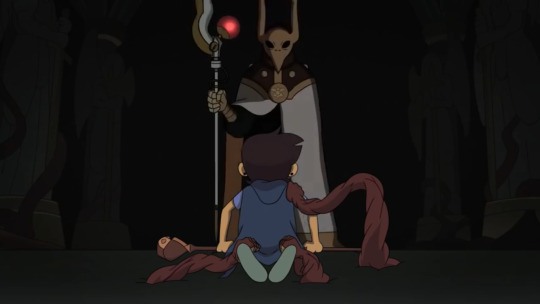#Knowledge commodification
Text
Capitalism and the Search for Truth: Unveiling the Hindrances
In today's globalized world, capitalism has become the dominant economic system, shaping societies, institutions, and even our pursuit of knowledge. While capitalism has its benefits, it is essential to examine its impact on the search for truth and the quest for knowledge. In this blog post, we will explore how capitalism can act as a hindrance to the pursuit of truth, stifling intellectual freedom, distorting information, and prioritizing profit over the common good.
Commercialization of Knowledge: Under capitalism, knowledge and information become commodified, subject to market forces and profit-driven motives. The commodification of knowledge can lead to the prioritization of research and information that is financially profitable rather than necessarily advancing truth and understanding. This bias can limit the exploration of unconventional or unprofitable ideas, hindering intellectual diversity and innovation.
Influence of Corporate Interests: In a capitalist society, corporations wield significant influence over the dissemination and production of knowledge. Corporate funding and sponsorship can shape research agendas, academic programs, and media narratives. This influence may result in conflicts of interest, where research and information are tailored to fit corporate agendas or protect corporate interests, potentially suppressing findings that challenge prevailing narratives or threaten profit-driven industries.
Inequality and Access to Education: Capitalism's inherent economic disparities can hinder the pursuit of truth by limiting access to education and opportunities for intellectual development. Unequal access to quality education, resources, and research facilities disproportionately affects marginalized communities. This deprivation of opportunities and knowledge perpetuates systemic inequalities, preventing diverse voices and perspectives from contributing to the collective search for truth.
Media Consolidation and Sensationalism: Under the capitalist media landscape, media outlets are often driven by profit motives, sensationalism, and the need for higher ratings. This focus on attracting viewers and maximizing profits can lead to a distortion of information and a prioritization of sensational stories over factual accuracy. The pursuit of truth can be undermined as media organizations strive to capture audience attention and generate advertising revenue, compromising the integrity of news reporting.
Intellectual Property and Patents: Capitalism's emphasis on individual ownership and proprietary rights can hinder the free exchange of knowledge. Intellectual property laws and patents can limit the dissemination of information, hindering collaborative efforts and impeding the collective search for truth. Profit-oriented motives may incentivize withholding or restricting access to vital scientific discoveries, impeding progress in fields that require open collaboration and sharing of knowledge.
While capitalism has fostered economic growth and innovation, it is important to critically examine its impact on the pursuit of truth and knowledge. By commodifying knowledge, promoting corporate interests, perpetuating educational inequalities, distorting information through media sensationalism, and prioritizing intellectual property rights, capitalism can pose significant challenges to the search for truth. As we navigate the complexities of our capitalist society, it is crucial to foster intellectual freedom, promote equitable access to education, encourage independent and critical thinking, and prioritize the common good over narrow profit-driven motives. By recognizing and addressing these hindrances, we can strive for a more inclusive and truth-seeking society that values the pursuit of knowledge for the betterment of all.
#Capitalism#Truth-seeking#Pursuit of knowledge#Intellectual freedom#Commodification of knowledge#Corporate influence#Conflicts of interest#Inequality in education#Media sensationalism#Intellectual property rights#Distortion of information#Capitalism and truth#Economic systems#Knowledge commodification#Access to education#Corporate influence on research#Media bias#Open exchange of knowledge#Common good#Critique of capitalism#philosophy#epistemology#knowledge#learning#ethics#education#chatgpt
3 notes
·
View notes
Note
Merryana, do you have articles or papers to recommend about Dune's inspiration/appropriation of the Quran and Islam? As an atheist with very little knowledge of religion, and I have a hard time knowing whether the articles I'm reading are thorough or not. Rn Im reading 'the Muslimness or Dune: a close reading of Appendix III' by Harris Durrani
hi there. honestly, I don't know of any academic ones. if you're that dedicated, just research the authors of what you're reading, and read Edward Said's Orientalism. In the meantime, this a good read by Nadeine Asbali.
The vaguely Arab desert backdrop becomes a place of intrigue and mystique (fit, even, to become the backdrop of a glamorous premiere) rather than the underdeveloped sites of war that the Middle East is usually portrayed as.
Words like ‘jihad’ are bandied about with no fear of criminalisation in this fictional paradigm that cloaks itself in Muslimness while further eroding our agency as Muslims.
Frustratingly but not surprisingly, for a film that so heavily borrows from the Arab Muslim world, there are no Middle Eastern actors in the cast. The lack of representation reinforces the overriding Orientalist agenda: our cultures can be attractive and commercial but only if adopted by the white and the wealthy.
434 notes
·
View notes
Text
part of the reason the black rose arc is so important and effective is that for the first time in the show, utena has to fight people who are weaker than her, who have less knowledge and agency than her, who haven’t been (actively) complicit in the duelling games and the commodification of the rose bride. so much of utena’s identity prior to this has been based on being the underdog, the ✨self-made prince✨, the hero on a quest to save victims of injustice..… and then all of a sudden she’s fighting literal elementary schoolers and girls whose names she never even bothered to learn and her own heartbroken best friend. and yes, they’ve been turned into tools by mikage and akio, but ultimately utena is the one who has to defeat them and tear the rose from their breast. and she’s gradually starting to become aware of her own complicity and it’s horrifying for her, and the only thing she can do is not think about it, not think about it, not think about it—
993 notes
·
View notes
Text
I've been sitting on this because it isn't really a big deal, but it keeps happening and I saw something similar happen to someone else a few days ago, so I guess we're doing this. for the last few weeks, I've been getting anons about one particular fic 'stealing ideas' from mine. now I'm assuming that these anons are nothing but well-meaning and I really do appreciate the concern, but I think we really need to have a chat about what's meant here by stealing.
I've scanned the fic in question and the premise is entirely different to mine. even if it wasn't, I cannot stress enough how much a fan creator cannot have a monopoly on tropes or ideas or plot points. so the difference comes down to the execution. and unless it's my prose that's being straight up lifted (which, to the best of my knowledge, it isn't), then this isn't stealing.
in fact, this is what fandom creation is.
it's being inspired. it's an exchange. it's yes, and. it's community and it's folklore. it's swimming in the same pool of ideas and sometimes independently coming to the same conclusion or wanting to explore the same question. and yes, of course, if another work was directly influential or if yours is an intentional remix, then you should absolutely credit that writer or artist. not only should you credit them, you should probably reach out because you probably have really similar thoughts and are about to make a great new friend.
maybe there's more to it, but I really think social media is at the root of the problem here. I'm not saying that fandom being on social media is an inherently bad thing, because it's really not. but the nature of social media is one of personal commodification and platformization, branding and ownership of ideas. and this is relevant here because there's a particularly high concentration of people in this fandom who entered directly from marauderstok, etc. and for whom this is their first fandom ever. so whether this applies to the particular anons in my inbox or not, I think this is an important distinction to make.
what's happening here isn't stealing.
what's happening here is the point.
181 notes
·
View notes
Text
The commodification of sex. Jamie losing his virginity that way. Jamie being uncomfortable with the charity auction. Jamie not thinking anything of having Keeley’s mostly topless photos in his locker. Jamie getting waxed so he can give the fans a show when he scores a goal. Jamie running away from Manchester and joining a reality show that involves him having sex on camera. Jamie not understanding what the big deal is when he’s caught sleeping with two different women. Jamie insisting that he was just playing the game. “I’m the top scorer on the island. Sexual-leh.”
To Keeley’s knowledge, it’s been ages since Jamie’s seen anyone.
420 notes
·
View notes
Text
“Romantic love is mostly love that is not mutual. Romantic love is thus likely to be oppressive. Romantic love is celebrated by the media which reinforces the oppression of women. It exploits the difference in power held by men and women. To reiterate: most men have more power than most women. One way in which women can gain prestige and psychological encouragement within the patriarchal system is by knowing that a man—a member of the dominant group—approves of her and says he loves her. Some women may superficially benefit psychologically from this knowledge, but in the long term most women become psychologically dependent, either on that man or on the approval of other men in the society.
Men express this 'approval' when they whistle at women in the street; women are meant to take it as a compliment on their appearance—what this really amounts to is exploitation and commodification of women via their sexuality. That is, women are seen as sex objects.
In order to gain such approval, women must spend a disproportionate amount of their time on things such as appearance, cultivation of a 'personality' (bubbly, likeable, sexy) and so on. This keeps women 'domesticated' and turned inward. As a result, their attention is diverted away from affairs of the world. This includes diverting a woman's attention away from her own oppression.”
-Susan Hawthorne, In Defence of Separatism
#Susan Hawthorne#female separatism#romantic love#female oppression#psychological dependence#female domestication
341 notes
·
View notes
Text
I’m probably late in suggesting this but… King James I published a whole book about witches, a guide of sorts, called Daemonologie. Published in 1597, it saw another reprint when he became king in 1603. James was said to have a fascination with witches and demons, to the point that it’s claimed Shakespeare wrote in an additional scene with the witches in Macbeth to pander to James’ tastes. The thing is…
James thought witches were evil. And his Daemonologie book explained how to recognize witches, how they worked, the animal familiars they used, all that stuff, ultimately to give witch-hunters an idea of how to find and kill them; Because the main solution to witchcraft in this book was execution. Daemonologie was meant to expose the existence of witchcraft to the common people, and prove it.
Philip and Caleb Wittebane entered Old Gravesfield in the year 1613. Just a decade after the Royal Re-Release of Understanding Witches (So you can kill them). Philip documents a lot of the stuff he sees in the Boiling Isles, to a scientific degree, cataloguing, categorizing, etc. And in the first diary entry we hear, Philip ruminates on how he wishes humanity could see the Boiling Isles and understand…

@fermented-writers-block already suggested this to me a while back, the idea that Philip initially wrote his journal as proof of witchcraft and especially the demon realm’s existence, so he could convince people to help him eradicate the alleged threat, and/or prove he went on a successful crusade that saved the world. Granted, the people of Gravesfield seemed like earnest believers by that point, but I can imagine Philip taking real-life inspiration from King James I to convince others around the globe, who may not be as receptive to his claims.
Anyhow, I think it deeply re-contextualizes our understanding of Philip’s diary entries in a complete 180 way; Most of us were under the initial impression that Philip’s fascination stemmed from a place of genuine wonder, curiosity, and appreciation for the Boiling Isles. But knowing he’s a witch hunter, it seems his interest came from a place of condemnation; Wanting to understand the witches so he could kill them. Whether James actually believed in witchcraft, I’m not sure, but to Philip, it was lore contributing to his favorite game of destroying the Bad Guys; Cowboys VS Indians, basically. The Collector accuses Philip of having fun destroying Grimwalkers, and they’re not even his main target.
It’s a borderline fetishistic attitude towards witches; Philip is enamored, he wants to know and understand and figure them out. But he’s so deeply committed to dehumanizing and hating them, wanting their utter annihilation. Witches exist as the enemy NPCs in a video game where Philip immerses himself into their lore and in-universe dialogue, even as he slaughters them in droves. It’s a sick and sadistic pleasure at the expense of others he loathes, paradoxical in the way fetishization is; Philip’s previously-shown interest is not a contradiction, at least not from a writing perspective.
It works as a way to trick the viewer while still making total sense. A brief outside glimpse might suggest to the unsuspecting that Philip DOES like witchcraft, but no, he’s an objectifying colonizer who wants to own and appropriate, not learn and engage with on the same, humble level as a learner. Philip sees himself as a conqueror looting knowledge instead of riches from his victims, and he gets just that from people like Luz and the Collector.
He doesn’t really understand what he’s playing with and he doesn’t want to; He’s the White Dude who indulges in ethnic stereotypes and cuisine, in the tourist-y commodification of cultures, while at the same time voting for minorities to be outlawed. I would even compare Philip to a trophy hunter, knowing all the stuff about his prey, writing comprehensive guides… all for the purpose of how to kill and destroy them, as part of some big game.
I get the feeling that Philip ultimately WANTED witches to exist; Because if he was truly genuine about saving the world, about protecting people, it’d be a relief to find out there was no threat after all. But Philip wants for there to be a threat, never mind what it can pose to others, because then he gets to be the hero!!! He gets to be chosen one who goes on a sick adventure beating people up! He goes on rants about a hidden threat beneath our very eyes, not because Philip actually wants to warn people, but because he sees this as his opportunity to be the savior; So really, Jacob Hopkins IS Philip, isn’t he?


153 notes
·
View notes
Text
In the ruins, ‘master narratives of history as progress decompose into the tense confabulations of a continuously remembered past that hits the present like a nervous shock’ [...]. The ghosts of this past rear up in the ruin, they are the debris of unprecedented material destruction [...] ‘the “trash” of history’ [...]. Forgetting this carnage [would be to support] the myth of [...] progress [...]. But the ruins remember [...], revealing the fragility of the social order. [...] Hauntings rupture linear temporality, inconveniently bring forth energies, which have supposedly been extinguished and forgotten. [...] Cities [and places, generally] seem to becoming increasingly regulated. In the transformation towards a service economy during the 1980s [in Britain], [...] [o]ld industrial sites were turned into shopping centres, retails parks and leisure sites. [...] There is then, in the drive to market places, [...] an aesthetic imperative to smooth over the cracks [...], and to fix the past, so that it does not intrude into an imagined linear future. [...] In cahoots with [...] marketeers, they suggest that the past is a distant, romantic echo that resounds faintly in museums [...]. Yet the ruins shout back at the refurbished urban text. [...] [T]hey haunt the city, for the unofficial past cannot be exorcised [...]. Ruins are sites where we can construct alternative stories to decentre commodified, official [...] descriptions, and [...] keep the past opened [...]. Counter-memories can be articulated in ruins, narratives that talk back to the smoothing over of difference. Away from the commercial and bureaucratic spaces of the city, ghosts proliferate where order diminishes. Ruins are [...] especially important, because [...] it is ‘essential to see the things and the people who are primarily unseen and banished to the periphery of our social graciousness.’
Text above by: Tim Edensor. “Haunting in the ruins: matter and immateriality.” Space and Culture Issue 11, pages 42-50. January 2002. [Bold emphasis added by me.]
-
-
-
[T]he contemporary Western city [...] [is] the site of [...] regulatory regimes concerned with strategies of surveillance and aesthetic monitoring [...]. The modern city can never become a wholly Appollonian, seamlessly regulated realm for it continues to be haunted by the neglected, the disposed of, and the repressed [...]. Within the interstices of the city there are a host of other spaces, part of a “wild zone”, a “[…] site […] which avoids the objective processes of ordered territorialisation […]”.
Staged […] through the intensified mediatisation and commodification of popular sites, myths, and icons […], mediated imaginary geographies circulate through adverts, soap operas, ‘classic’ rock stations [...] typically drenched in […] ideologies. […] These exhibitions memorialise culture via ‘publicly sanctioned narratives’ and institutionalised rhetoric [...]. [I]n which people are encoded and contextualied, categorised and narrated.
Accordingly, ruins are places from which other memories can be articulated, from which “the things and the people who are primarily unseen and banished to the periphery of our social graciousness” [...] may be encountered. [...]
[T]he outmoded object can become charged [...] with a certain power, and "might spark a brief profane illumination of a past productive mode, social formation, and structure of feeling -- an uncanny return of a historically repressed moment" [...]. Thus we might stumble across seemingly archaic decor or furniture, [...] toys, and mascots of yesteryear [...], the debris of discarded fashions [...]. Although such objects [may] seem [...] absurd or comical, they may bring back knowledge, tastes, and sensations [...]. This was debris which was enfolded into the mundaneity of a shared everyday [...].
Along with other places on the margins of regulated space, industrial ruins are “points of transition, passages [...], moments of magic that exist at the interstices of modernity” […]. Modern attempts to cleanse, banish ambiguity, and order the memory of space are always disturbed by such disorderly spaces and by the ghosts they contain, who refuse to rest quietly, [...] a “spectral [...] residue“ which haunts dominant ways of seeing and being [...].
In contradistinction to the fixed memories [...] and to the imaginary linearities proposed by hegemonic […] memories, these ghosts foreground ambiguity, polysemy, and multiplicity, enabling us to “disrupt the signifying chains of legitimacy [...].” Although it is often overcoded and regulated, the city nevertheless contains multitudinous scraps from which alternative stories might be assembled. […] In spaces such as industrial ruins, the excessive debris confronted constitutes material for multiple modes of narration about the past: “the debris of shipwrecked histories still today raise up the ruins of an unknown, strange city. They burst forth within the modernist, massive, homogenous city like slips of the tongue from an unknown, perhaps unconscious, language” [...].
This kind of remembering implies an ethics about confronting and understanding otherness (here, the alterity of the past) which is tactile, imaginative […].
---
Text by: Tim Edensor. “The ghosts of industrial ruins: ordering and disordering memory in excessive space.” Environment and Planning D: Society and Space Volume 23, pages 829-849. 2005. [Bold emphasis and some paragraph breaks/contractions added by me.]
#halloween#i guess idk#abolition#ecology#haunted#imperial#colonial#indigenous#multispecies#landscape#temporality
49 notes
·
View notes
Text
Pretending (or not)
Cassian Andor x reader

Summary: Given Cassian's perpetual distaste for all things merry and festive, his offer to be your fake date for your company's holiday party is surprising, to say the least.
Word Count: 1.3k
Content: modern au, fluff, fake dating, first kiss
Prompt: Fake dating for a work holiday party + confessing feelings
DECK THE HALLS MASTERLIST
Cassian Andor is not a fan of Christmas.
He hates the commercialized commodification of it all.
He hates the bustling madness of the city in the weeks leading up to the holiday.
He hates the soul-crushing anxiety of gift shopping and the unrealistic expectations that accompany it.
He hates the explosion of glitzy decor that decks every hall and the endlessly cheery music that he can’t seem to escape.
And it’s this knowledge that makes his presence at your side now at your work’s holiday party completely and utterly baffling.
–
Last week, Cassian, Bix, and Brasso were gathered in your living room with several boxes of pizza spread out across your coffee table and a movie playing in the background. After peeling away a stray mushroom that had found its way onto the slice in your hands, you’d groaned as your phone screen lit up with an email reminder about the party in question.
“I thought you said Luthen throws great parties, aren’t you usually excited?” Bix had asked.
At that, you’d told them all about your coworker that, as of late, is utterly incapable of taking the hint that you simply aren’t interested in conversing with him, much less spending time with him outside of work. You’ve yet to find a moment to inform your boss of what a bother the man has become, and thus you weren’t keen on subjecting yourself to an entire extracurricular evening in his vicinity. You’d resigned yourself to the only surefire avoidance tactic: skipping the event entirely.
And then Cassian had suddenly spoken four words that left the room's occupants silent for a beat—
“I’ll come with you.”
Brasso had choked on his drink mid-sip, and Bix turned down the volume on the television as she gaped at him.
Despite the fact that everyone in the room was entirely certain that Cassian would never be caught dead at a Christmas party, much less any other festive gathering, he had the gall to shrug as he took in the surprise on the faces surrounding him.
Snatching the abandoned piece of crust on your plate as he often did, he'd taken a bite and shrugged, swallowing before adding, “Well, you need a fake date, right?”
–
The sounds of partygoers animatedly talking and laughing bounce off of the museum’s high ceilings, which are strung to and fro with an exorbitant amount of garland, bows, and soft white lights. You steal a glance over at Cassian, who’s ignoring the assortment of alcohol-fueled, holiday-themed games in the boardroom that the rest of the guests are flocking to in favor of observing a new exhibit that was installed earlier in the month.
Given that he’s far too absorbed reading the placard for the antique biplane roped off in front of him, you let your gaze linger longer than usual on his form for once. You’ve always appreciated Cassian’s rugged winter look—his hair long with rogue, wayward strands and a full, glorious beard adorning his face. After you assured him that he by no means needed to dress up this evening, he’d opted for a dark green flannel shirt that you’d given him for his birthday last year. Paired with black pants that hug his thighs far too well and his brown leather boots that you hardly ever see him without, Cassian just looks really fucking good.
And well, he always looks good.
It’s something that you can’t help but notice, regardless of how desperately hard you try to tamper down the way you feel about him. They’re feelings that fizz out of control like a shaken bottle of soda at times like these, threatening to come pouring out—gravity be damned—should you lose your precarious grip on the lid.
Distracted by your own thoughts, you nearly jump at the feeling of a hand wrapping snugly around your waist. And though you begin to relax when you realize it’s just Cassian, you immediately tense up again at the warmth that crawls up your spine in reaction to the way his fingertips press into your hip bone through the fabric of your dress.
“That’s him, right?”
Your breath hitches in your throat when Cassian brings his lips to the shell of your ear to ask you the question, his breath hot against your skin. Out of the corner of your eye, you spot Syril Karn, who’s predictably overdressed as he begins to make his way over to you.
“Yep,” you groan quietly, tone laced with dread.
“Look at me,” Cassian murmurs, letting his fingers skate across the curve of your jaw.
Silent warning bells echo in your head as you turn to him, heart leaping at his close proximity when his nose brushes against yours. It would be far too easy to ki—
Cassian beats you to the punch, his mouth seeking yours out in a slow, tender kiss that sets your insides alight, your nerve endings tingling as his hand slides down the side of your neck, his thumb brushing over your skin in a gentle caress.
Your hand finds its way to one of the pockets on the front of his shirt, your fingertips pressing into the cool metal button holding down the flap. Momentarily forgetting that this is all a festive ruse, your mind reels at the feeling of Cassian’s tongue darting out to meet the seam of your lips, and you fist your hand in the material, pulling him closer. He cups the back of your head in return, his soft lips sliding against yours for another moment before you’re interrupted by the sound of someone clearing their throat, followed by your name.
The two of you break apart, and you will the erratic beating of your heart to slow as you turn to glance at Syril, though your face heats up as you feel Cassian take one of your hands, threading his fingers into yours.
"Syril," you acknowledge him evenly.
“I’m pleased you could make it, I know last week you said you weren’t certain about your plans for the evening,” Syril observes, straightening his collar, though it’s already ironed stiffly enough to poke someone’s eye out.
“Oh. Yeah, it ended up working out. This is Cassian, by the way.” You awkwardly gesture to Cassian, placing a hand on his shoulder.
Syril nods in his direction. “Ah, are you a friend?”
Cassian stiffens beside you. “Boyfriend, actually.”
He tries to hide it, but Syril blanches for a split second, though he quickly composes himself, clasping his hands together. “How lovely. Is this...new?”
On the drive over, you’d come up with a vague story about getting together recently, if anyone were to ask. But just as you go to open your mouth to tell Syril exactly that, Cassian interrupts, “Not at all. It’s been a few years, actually.”
Syril’s clearly deflated at this point, shoulders drooping, and after another few minutes of failed small talk, he mumbles an excuse to make himself scarce, ambling away in the opposite direction.
You turn to Cassian, almost annoyed by how easily it had been to ward off Syril in comparison to every other overbearing interaction you’ve ever had with him—as if your lack of interest alone wasn’t enough of a valid reason without the addition of a fake relationship. Crossing your arms, you’re on the verge of griping about it, but the words die on your lips when you catch the odd look on his face.
“I can’t pretend anymore,” he breathes out.
Your heart sinks. “I’m sorry if that made you uncomfortable, we can go—”
“That’s not what I mean.”
Cassian takes your hand, running his thumb over your knuckles, and he continues, “I can’t keep lying to myself about the way I feel about you.”
You sway slightly on your feet. Carefully, you ask, “And…how do you feel about me?”
He leans in, his chest brushing against yours as he brings a tentative hand up to the side of your face. “I want to kiss you when nobody’s watching, too. I want this to be real.”
His mouth hovers near yours, a breath away. Waiting.
“It is,” you whisper, a tidal wave of emotions thrumming in your chest as you close the distance between your lips and his.
—
Comments, reblogs, and/or asks are always appreciated!
» CASSIAN ANDOR MASTERLIST
#deck the halls with dameronscopilot#cassian andor#cassian andor fanfiction#cassian andor x reader#diego luna fanfiction#star wars fanfiction
146 notes
·
View notes
Text
Modes of Address
Pronoun Check, 2024 edition! Here’s what I ask you to use for me.
It/its - No
She/her - Please don’t.
He/him - I’ll just be confused
They/them - Yes
Ze/zir - Yes
Mr. - Nope
Mx. - Yes
Miss. - Nope
Ms. - Only if there’s no Mx.
Sir - Heh. I guess?
Ma’am - No thanks.
Dude - Only certain people get to do this. If you’re not sure, please don’t.
Bro/bruh/bruv - Heh. Okay.
Bud/Buddy - Yes
Mate - Yes
Sis - Literally only one person in the cosmos is allowed to do this.
Sib - Yes
Boy - Maybe sometimes
Girl - no
Gurl - no
Boi - Again: I will be confused.
King - Pahaha, why not?
Queen - Not really.
Prince - Maybe?
Princess - NO.
Monarch - Yup
Your Highness - Sure. I mean, royalty is an outmoded form of constitutional commodification of the idea that some people are and should be born to inherently better, more comfortable lives, with control over those around them, but it’s at least gender-neutral...
Your Majesty - See above.
Your Eminence - ABSOLUTELY!
Captain - Yep
Lady - NOOO.
Comrade - YES!
Feminine compliments (pretty, beautiful, etc.) - Generally okay, but it’s easier if I know you’d apply them across the gender board.
Masculine compliments (handsome, etc.) - See above.
Neutral compliments (attractive, gorgeous, hot, etc.) - yes
(Re: compliments in general - I find physical attractiveness compliments a bit baffling as I have had very little to do with those attributes, but complimenting my skills, my voice, my compassion, my knowledge? THAT I definitely dig...)
Honey, Sweety, etc. - Sure. I mean, I come from a culture of calling everyone of any gender or age “love”, “petal”, “blossom”, etc., so...
Copy and replace with your answers if you want to share. You can do this whether you’re cis or trans or define yourself in other ways re: gender.
#fay speaks#gender stuff#modes of address#pronouns#genderqueer#nonbinary#look just ask if you're not sure
7 notes
·
View notes
Text
That paper was very dense and jargon-y but it does get at the essence of what bugs me about the “culture criticism” on this site: the compulsion to sort art into strictly instrumental categories of Having Good or Bad Politics that can be conclusively determined by a sufficiently moral/knowledgeable arbiter, and that not only can those politics bypass their metaphorical constructions and directly infect the reader/viewer via sensation, they can be generalized and re-abstracted into associated risk values (typically of Corruption or Idiocy). This is why so much of the discourse on Tumblr about books, television, film, etc amounts to a series of didactic warnings: enjoying X or Y is making you dumber, less discerning, more permissive of moral wrongdoing and more likely to reproduce it yourself. It’s also why the joyless scolds are so preoccupied with pornography and erotica; matters of intense sensation I.E. “getting off,” when tied to a concrete instrumental purpose and the wrong politics, would be considered especially dangerous by this logic. Thrill, wonder, and physical pleasure are no longer things that can be personally experienced through and contained by art as artifice, as representation, as fantasy for its own private incommensurable sake — they must be related back to a pre-existing moral and functional order that has the ability to circumvent your own conscious reflection, intention, and control. If you do not see this as commodification in its own right I don’t know what to tell you.
23 notes
·
View notes
Note
Why do you fetishize non-American, non-white cultures so much? Like so many American tourists, you have no serious interest in actually living this way. It’s all just some sort of exotic theme park to you, and it’s kinda dehumanizing.
Just like with most people with tumblr blogs, what you’re seeing on here is not my entire personality nor my entire life’s focus. But as for why I’m so interested in people that aren’t Like Me, I think it’s cool to learn about the ways in which some aspects of humanity are seemingly universal, the aspects in which some things are different from my experience, and how these differences affect things like culture, politics, history, our relationships with one another, and how we view ourselves. I also just really enjoy folk dress and architecture from different cultures because it’s genuinely fun to see how beauty manifests in different ways and seeing the incredible things human beings make. And these more tangible artifacts directly reflect culture and history. I also take care to read authors from different backgrounds from me too for the same reasons. To know and appreciate other people’s stories, triumphs, struggles, and ways of living. Yes I very much enjoy learning about other people and I very much enjoy the beautiful things other kinds of people create. And I do recognize physical beauty in ethnicities of all kinds too. But appreciation and education are not quite the same as fetishization. Fetishization implies a lack of compassion, a lack of research, a shallowness, and an aim at commodification —all of which you’re assuming with limited knowledge of me as a person.
I wonder what you would propose as an alternative to engaging with people and cultures unlike my own? Should I segregate myself instead? Make friends only with people who look like me? Center myself in the world? View things only through my own lens? Appreciate and seek to understand only my own culture and nation? Care only for my own kind’s achievements and struggles? Place a reverence on my own group’s cuisines and aesthetics? Place the beauty of my own race on a pedestal and ignore the beauty of everyone else? Consume media produced by and created only for people like me?
9 notes
·
View notes
Text
I will admit that my suspicion towards Howdy Pillar is partly for the meme of it all, y'know? Going ham on my speculation about one of the least outwardly suspicious characters. It's funny. But also, yeah, I just got hit with another wave of brainworms about it. Because, the commodification of art, yeah? I feel like that's gonna have to come up in the story, as it's the story of an artistic work that was survived and is entirely informed by the glut of stuff made to promote it and it promoted in turn, and Howdy is the perfect character to represent that aspect. A layman business owner in a town of creative people that trades ideas for life necessities who is a caterpillar, an animal that lives to eat and eat and eat, one that should have pupated a looooong time ago. The fact that he holds an apple in his character illustration and has apples plastered all over his store— Wally's artistic fixation, a fruit that has connotations of forbidden knowledge and represents the baseline normal for Wally's worldview that's not supposed to change (the apple pie thing). An apple can't become a pie, and the caterpillar won't become a butterfly, even if those changes are normal or natural. It's just........... there's Something Here, I know it! And yeah, Howdy being a very late addition to the cast might indicate that he's not very important, but on the contrary, that could very well mean that he's a character that the story in its current form needs! Maybe he's a thematic linchpin! AHHH!
41 notes
·
View notes
Text
Anthroposophy: Lucifer, Ahriman, Christ
"Lucifer" is a spiritualizing force of temptation and distraction that brings higher knowledge, freedom, unrestrained creative exploration, and the dissolution of structure. Following him is a path of depersonalization, foregoing personal history and possessions, spiritual bypassing, overindulging in fantasy and mythology, change for the sake of change, anarchy, delusion, false ideologies, seeing the world as an illusion with no real value, retreating from life, hedonistic confusion of what maximizes enjoyment and states of ecstasy or mania with what is divine; the desires, passions, and aspirations that lend to overreaching ambition or hubris. He motivates us to find bliss (lifted from the weight of physical existence) by chasing anything that excites or voices itself from spirit in spite of lacking the ability to discern (regressing into animal nature) where those impulses are coming from, leaving us in a perpetual state of wandering aimlessly with infinite potential.

"Ahriman" is a materializing force of deception and lies that reduces things into forms and processes of physics that can be preserved in one differentiated state. Following him is a path of developing an overly analytical and mechanistic worldview, scientism, dogma/orthodoxy, reluctance to change, not being able to see beyond genetics, consumerism and commodification, acquisition of wealth, rationalism, weaponized intellectualism, becoming cold and dehumanized with a lack of empathy and compassion or any emotional depth; the fear, doubt, and pessimism rooted in material concerns such as survival, loss, and limitation. He motivates us to keep our essence contained in the physical realm (immortalize the body) by making us more like a machine (transhuman), looking for the solution to every problem through more effective systems of technology and surveillance, developing algorithms to recognize patterns and make predictions on a massive scale (artificial intelligence), and determining your value based solely on social credit.

"Christ" is the harmonizing solar force that balances the Luciferic and Ahrimanic impulse. Jesus himself was an advanced soul that carried the essence of Christ to perform a ritual that changed humanity by his sacrifice. When Christ incarnated to serve this purpose, it allowed for humanity to ascend out of matter into the kingdom of Heaven represented by the soul. Through the essence of Christ, we attain a natural sense of morality and we’re able to evolve by working from within ourselves to develop a conscience and see clearly. This Christ consciousness rests in the heart chakra, a center of truth. Unless we are centered in the heart, we’re not truly participating in life. We find balance by grounding spirituality, refining the knowledge received from spirit, aligning our ego with the truth of our soul and using that to serve others in a more meaningful way, realizing our physical body as a temple of the divine.

Without Christ consciousness, we fall under the influence of Lucifer or Ahriman and worship them as God. These forces then become parasitic and feed on our potential as individuals by draining and misdirecting our essence to serve them.
The names of these entities are ways of identifying forces at play that are higher cosmic impulses which drive and personify through us to greater or lesser extents at different phases of our evolution. Our consciousness is seen as a vessel which carries these impulses but the force itself transcends its personification. We may or may not be aware of the spiritual forces that are acting upon us but it’s only by learning what we can about their essence that we can start using them to transform ourselves.

#lucifer#ahriman#christ#consciousness#anthroposophy#spirituality#meaning#purpose#humility#spiritual evolution#rudolf steiner#heart chakra#truth
9 notes
·
View notes
Text
Gonna preface this with: tumblr discourse isn't real and can't hurt you...
Here's some two-cents on the stupid goth/punk as a music-based subculture discourse coming from someone who's clocked about a decade in a DIY scene, along with some info for those actually genuinely interested in pursuing a relationship with your local scene rather than arguing about things you have no knowledge of online. Your local scene is always looking for new people!
I'm not presenting myself as an expert here but I'm pretty knowledgeable due to my time involved. Under the cut I've got a rundown on how easy it is to break into your local scene instead of arguing online.
THE REALITY IS:
Preface: I don't want to discourage people and this isn't gatekeeping! Join your scene! A lot of these scenes are actually dying due to commodification and gentrification and they're always looking for new people! I have pals in hardcore bands who actually LOVE seeing tiktok kids at shows because there's a new generation of people interested!
One thing you'll discover if you become involved in your local scene is that it's most often entirely DIY based! Everyone is welcome and venues go out of their way to be accessible to everyone, including disabled folks, people of colour and queer people, so if you've spent time at even one show, you'd know "gatekeeping" isn't about keeping things pure, it's because we're trying to keep brands and instagoths/punks from gentrifying long-standing communities dedicated to the arts! What newbies and dweebs on here should understand is that going to shows, community-building and meeting like-minded people is what goth and punk are about. Not spending exorbitant amounts of money on clothes to look like you participate. Regardless of the community's political alignment (no, punk and goth are not one monolithic political opinion and if you got off the internet you'd figure that out pretty quick), the music is what brings people together, and often allows outcasts to find a community that brands simply cannot replicate.
The answer is: if you want to be a goth or a punk you have to listen to goth or punk music. This doesn't mean you can't listen to other things; you don't even have to dress the part at all to be in the scene! My partner plays in local goth bands and wears jeans and tees and that's about it. Because goth and punk are and have always been music-based, they require you to be involved in the music, and simply put, allowing people to believe it's an "aesthetic" gives way for brands to commodify an entire community. It jeopardizes the sincerity of art! And that sucks ass!
HOW TO GET INVOLVED:
If you're curious but don't know where to begin: your best friends for community-building, DIY and meeting people are your local thrifts, all ages and adult venues, queer clubs, zine-making nights, art shows, indie movie theatres, bookstores, record stores, Etsy, military surplus, vintage stores and I can't stress this enough, Instagram small businesses. Personally, my battle jacket is made up of patches I bought and also made myself, alcohol paint I got from the local art store, safety pins from the sewing store, chains from broken old belts and jewelry, studs from a small business, pins from small businesses and friends and the jacket itself was thrifted. My first battle vest I made when I was 15 was thrifted and almost all of my patches were hand-painted!
The best places to find shows are social media, posters on the street and at record stores, and asking around! There's a reason people you'll hear the term 'ask a punk' about the location of DIY venues; meet some people in the scene and most of them will be open to helping out. My first few shows I went to as a teenager I found on Facebook and through older friends.
This isn't to glorify scenes, they have their own independent issues varying city-to-city, but I promise you you will always find someone who's willing to help you out. What a real gatekeeper looks like is someone who's unwilling to give you a chance because of your identity, whether that be age, skin colour, gender, sexual orientation etc.
THE MUSIC
As I said, people are here first and foremost because of the love of the music. Here's some YT playlists I've put together if you'd like to explore what goth and punk actually are (it's literally not an aesthetic)! Some of this can be found on Spotify, and pretty much always on record/tape/CD!
(Thought I'd mention that maybe a couple of these bands have controversial politics; I do not condone it but regardless of politics they're critical to the history)
PS - I'm not a genre purist, sue me. These playlists include a lot of bands who might not fall under the traditional goth category, just songs that are critical to the subculture.
GOTH (including deathrockers, proto-goth, rivetheads, trad goths, new-wavers, post-punks, mod goths and more)
PROTO-GOTH - music important to the evolution of what became goth in the very late 70s as we know it! Starting with 30s delta blues up to 1980!
EARLY GOTH - the earliest days of goth, mostly focusing on late 70s post-punk, deathrock, new wave and early industrial through to the mid-ish 80s, some people call it proto-goth but I personally consider it first wave (it's all labels anyway!)
GOTH NINETIES - the 90s had a resurgence of goth subculture through industrial, industrial metal and a continuation of deathrock. Other genres begin to find an interest in darker material and take influence from goth bands.
MOD GOTH - the 00s to the present! This is super, super broad and should have something for everyone. There's a lot of modern music with goth influences.
I'm continuing to add to these playlists as I've made them for this post! Check back later and there'll be more.
PUNK (including hardcore punks, no-wavers, trad punks, proto-punks, dispunks and more)
For this I'm going to give you my personal punk playlist - it's such a broad genre with a million subgenres that I can't really cover it all in one post! The playlist is biased as I have my personal faves (including digihardcore, post-hardcore, skramz, no wave, electropunk, d-beat, noise rock and NYC '77). If you have questions about it DM me!
I REALLY hope this means something to someone, because I promise you there's places IRL where you don't have to argue about what makes you a fashion punk or not! If you're interested in the scene, start with the music and then go touch grass. It's music-based first and foremost; never mind the Dolls Kill bullshit.
8 notes
·
View notes
Text

"Beavis and Butt-Head" for the SNES, adapted from the popular MTV animated series, captures the misadventures of its titular characters, Beavis and Butt-Head, as they navigate their mundane suburban existence. This video game, much like the show, subtly critiques consumer culture, the banality of modern life, and the search for meaning within it. Through the philosophical lenses of Albert Camus's Absurdism, Jean Baudrillard's Simulacra and Simulation, Guy Debord's Society of the Spectacle, and Friedrich Nietzsche’s Nihilism, we can delve into a profound examination of the game.
1. Camus and the Absurd:
Albert Camus’s philosophy of the absurd explores the conflict between humans' desire to find inherent value in life and the universe’s cold indifference. Beavis and Butt-Head's endless, often mindless pursuit of things like concert tickets echoes the absurd hero’s struggle. Their relentless quest in the face of repetitive, mundane tasks mirrors the absurd condition; they persist in their endeavors, deriving meaning from inherently meaningless pursuits. The game, by exaggerating these themes, highlights the existential comedy of their situation.
2. Baudrillard and Hyperreality:
Jean Baudrillard’s concept of hyperreality, where the distinction between reality and the simulated copy blurs, is apt for analyzing "Beavis and Butt-Head." The game, a simulation of a TV show that satirizes the vapidity of consumerist culture, itself becomes a form of hyperreality. Players engage with Beavis and Butt-Head not as characters in their authentic reality but as hyperreal icons within a simulated environment that is 'more real than real' — a pixelated microcosm of their TV antics, further distorting the line between the characters' reality and their representation.
3. Debord and the Spectacle:
Guy Debord’s theory of the spectacle, which suggests that modern society has replaced all direct experiences with mere representations, is another critical lens through which the game can be viewed. In "Beavis and Butt-Head," everything is mediated through the spectacle of the television set—the source of the characters’ cultural knowledge and motivations. The game enhances this spectacle, making the players active participants in the mediated experiences that drive the characters' lives. It reflects Debord’s idea that the spectacle subsumes and sells back life experiences after dressing them in commodification's guise.
4. Nietzsche and Nihilism:
Friedrich Nietzsche’s exploration of nihilism, particularly the idea that traditional values (like moral or religious norms) have lost their power in the lives of individuals, provides a dark backdrop to the game’s ethos. Beavis and Butt-Head’s often amoral, aimless wandering through life, driven by base needs and simplistic desires, epitomizes Nietzsche’s diagnosis of modernity’s nihilistic trajectory. Their world is devoid of deeper moral structures; instead, it revolves around immediate gratification and the pursuit of trivial pleasures.
In sum, "Beavis and Butt-Head" for the SNES is not just a trivial pursuit of two culturally inept teenagers; it is a profound commentary on the existential, hyperreal, and spectacular nature of contemporary life. Through Camus, Baudrillard, Debord, and Nietzsche, we see how the game reflects the philosophical complexities of finding meaning in a postmodern world dominated by simulacra, spectacle, and a pervasive sense of nihilism. The characters' absurd quests and their interactions with the world offer a mirror to the player's own engagements with reality, challenging us to question the authenticity and value of our pursuits in a digitally mediated landscape.
6 notes
·
View notes